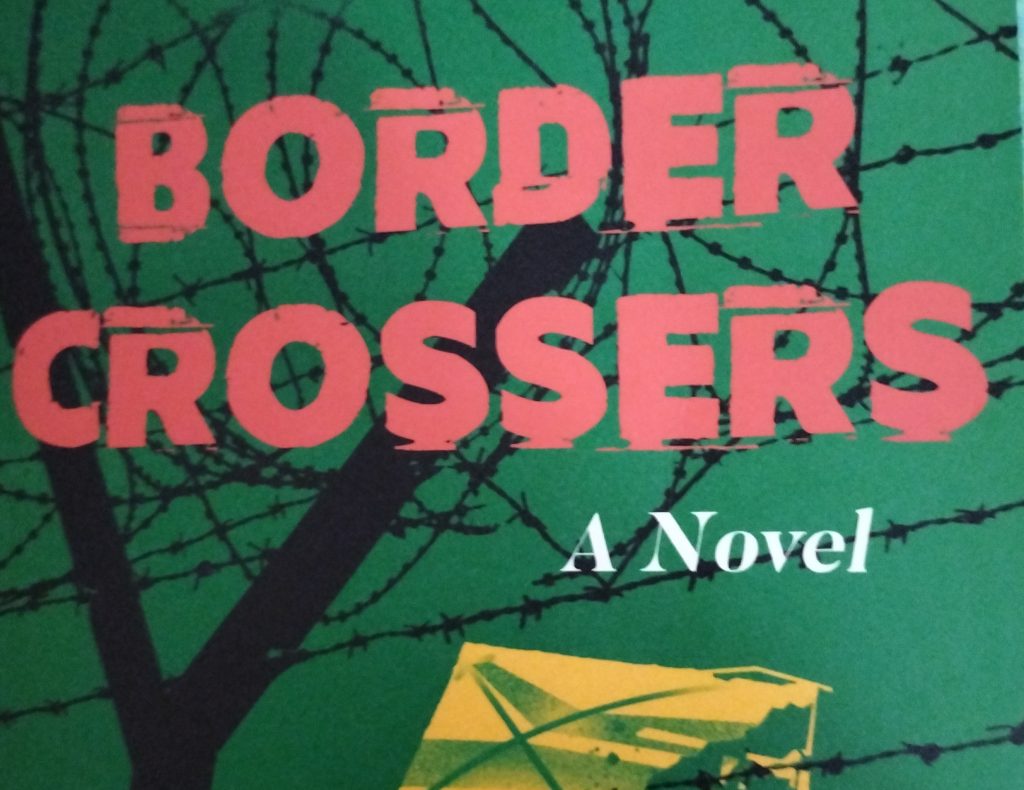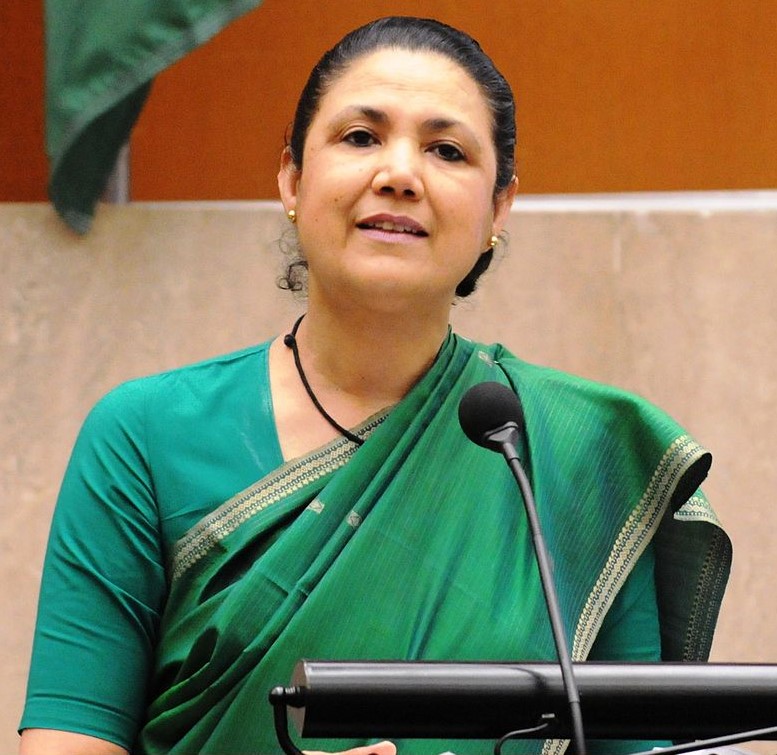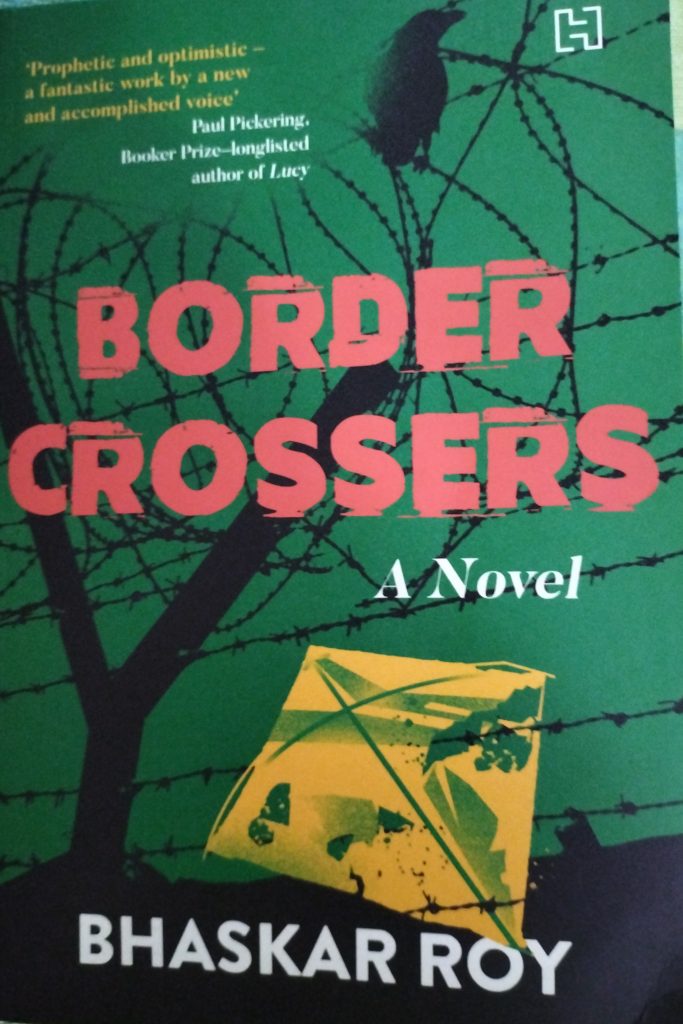
In Border Crossers, Bhaskar Roy crafts an evocative and timely novel about the human cost of migration, love, and loss. The novel weaves together all the big themes of our times: from climate change to migration to growing religious intolerance and violence through the story of Rita (Rabeya), a young Bangladeshi migrant. A book review

Bhaskar Roy’s book, Border Crossers, is an elegantly written and haunting novel about displacement, love and loss and, ultimately, the resilience of the human spirit. It weaves together all the big themes of our times: from climate change to migration to growing religious intolerance and violence through the story of Rita (Rabeya), a young Bangladeshi woman, who makes the perilous journey across the border into India, from her coastal village along the river Rupsa. She is fortunate to find employment with the retired Indian diplomat Arijit Basu, who has come back after a distinguished career to settle in a boom town on the outskirts of Delhi where new urban apartments rise amidst the surrounding farmland. Arijit, back from negotiating a nuclear energy agreement, is an outsider here. For him “it was unfamiliar urban life with hints of cow dung and sugar cane”. The poor, many illegal migrants amongst them including Rita, live in a festering shanty town nearby and provide the services that those living in the glitzy new apartments need.
Rita shines as a cook, transforming Arijit’s silent apartment into a home. She learned these cooking skills from her father and a foodie American documentary filmmaker who was making a film on Bangladesh and with whom her father had worked, before he abandoned his family for a new wife. Ironically, the generosity of his American employer had destroyed his family!
There are two unrealized love stories in the book. Nandita, the intelligent and self- assured journalist and publisher, who had “become a part of Paris society, making waves” had helped Arijit to survive and heal in Paris after his marriage with Ranjana, the street theatre artist and eternal rebel, had shattered on the shards of her depression and alcoholism. Nandita is now back in Delhi, confused and dejected, “a woman in her fifties caught in a blind alley”. She reconnects with Arijit and they renew their relationship, plan to get married and spend the autumn and winter of their lives together. But their efforts to help Rita, and the terrible and tragic chain of events that follow, wreck their lives condemning them to their separate and lonely existence. “The events of a single day ruined what had promised to be a good ending to a long story.”
The unfulfilled, blazing passion of Jamal for Rita ends in devastation. A fisherman who rowed his boat on the Rupsa river, Jamal crosses over to India searching for Rita. He never adjusts and longs to be back again in his old life, rowing his little boat, past the stunted mangrove palms; “that’s the end of the human kingdom and the start of dark tides, fish, crocodiles and dense forests. Tiger country”. Rita is drawn to him, but she craves stability and security and decides that, given his erratic ways, he cannot be her life partner. Thwarted in love and uprooted, Jamal falls easy prey to the preachings of shadowy figures with devastating consequences.
It is Chhetri, the simple Nepali security guard, at Arijit’s apartment, who saves Rita in her darkest hour. He takes her away with him on a scooter, gets her a Nepali passport and, when Arijit finally finds them, they are hoping to migrate to Australia where they will start a new life. Chhetri’s silent love for Rita finds fulfillment. In the moment of crisis, he acts without hesitation and it is, finally, Chhetri who could potentially provide the security that Rita has been seeking and the hope of a better life.
There are also fascinating nuances in the way the border crossers adapt to their life in India. Some, like Rita’s cousin Rekha (Amina), grasp new opportunities with both hands and leave their old life. Others, like Jamal, hark back to the past, unable to cope with the feelings of loss and displacement. Those, like Rita, look ahead but do not cut themselves off from their roots.

Different lives and worlds interact and collide in Border Crossers. The rich and the middle class in India find that they cannot isolate themselves in islands of prosperity and order, when the lives of the teeming poor around them are so precarious and on the razor’s edge. The various currents of rising religious intolerance flowing through the polity and society in India impact even those who seek to remain aloof and above the fray, like Arijit. At a global level, President Trump has sailed to victory riding the crest of this anti-immigrant wave and is currently undertaking large scale deportations. Anti immigrant fears led to Brexit in the UK,even at the cost of future prosperity. In Europe, right wing parties are growing on the back of anti-immigrant feeling. The unprecedented movement of people across borders in search of better lives or in the wake of environmental disasters or conflicts has led to a backlash in the developed world as values and cultures collide .It is a time of great global uncertainty and volatility. Border Crossers captures this shifting world in the South Asian sub continent in its many dimensions.
The book flows easily. The writing is lyrical and expressive and the narrative taut. The fate of the well-drawn characters keeps you engrossed. It is a book of the times and worth reading.
(Meera Shankar was the first woman career diplomat to serve as India’s ambassador to the U.S.)












